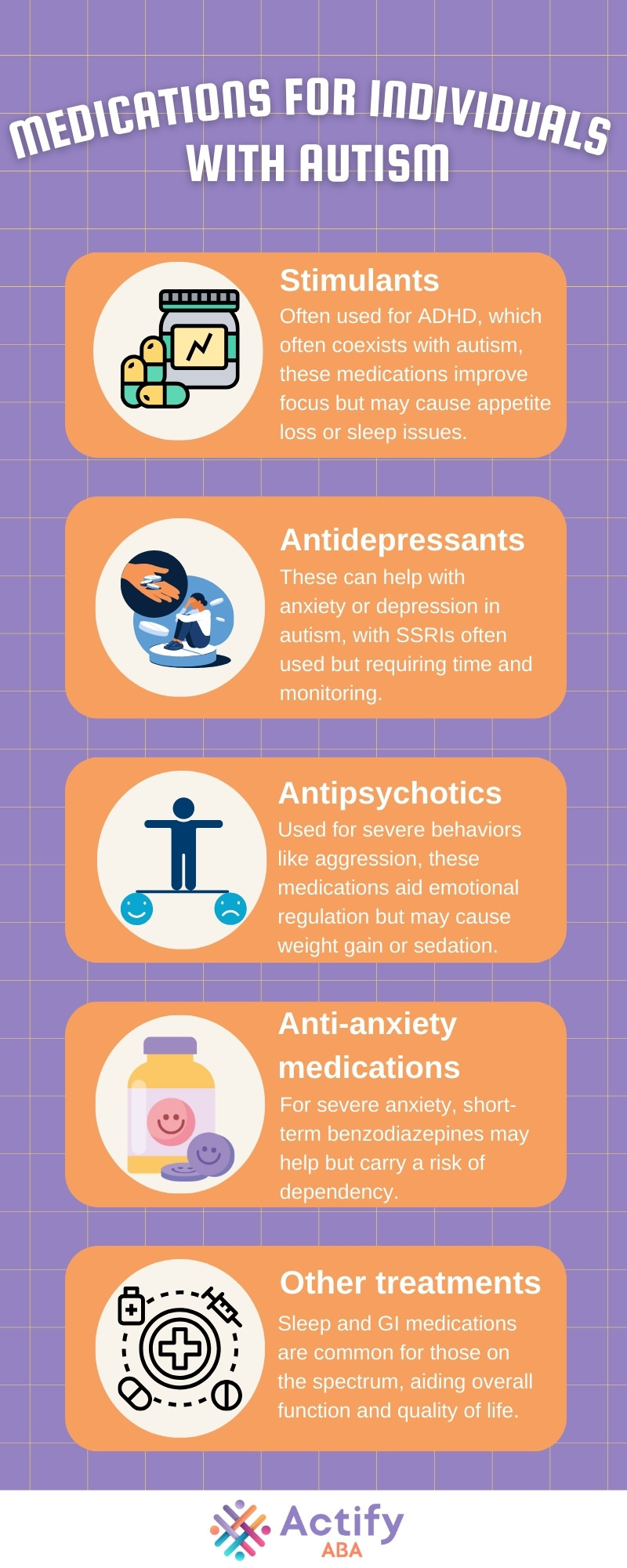
Key Points:
- Autism Spectrum Disorder (ASD) is not something that can be “cured,” but there are numerous effective treatments available to manage symptoms and improve quality of life.
- Treatments like Applied Behavior Analysis (ABA) therapy focus on helping individuals with ASD develop life skills and coping mechanisms.
- Understanding that early intervention and consistent support play crucial roles in maximizing the potential of individuals with autism.
The question “Is there a way to cure autism?” is a common one, especially for parents and caregivers looking for ways to help their children. Autism Spectrum Disorder (ASD) is a lifelong condition that affects individuals in varying degrees, often making it difficult to predict how a person will experience life.
While autism cannot be cured, it can be managed effectively through various treatments and therapies. According to research, around 62% of individuals with autism undergo treatments. Early intervention and ongoing support can make a significant difference in helping individuals with autism develop essential skills, improve social interactions, and lead fulfilling lives. In this article, we will explore the available treatments and therapies that can assist those with autism.
Is There a Way to Cure Autism?
To put it simply: No, there is no cure for autism. Autism Spectrum Disorder is a neurological condition that affects how a person perceives and interacts with the world. This condition has lifelong characteristics that vary greatly from one individual to another. While there are many treatments available to help manage symptoms and improve life quality, there is no medical cure that will make autism disappear.
Although a cure doesn’t exist, early intervention programs and therapies can significantly improve behavior, communication, and adaptive skills, enhancing a person’s ability to function independently and engage meaningfully with others. So, while autism cannot be cured, its impact can be reduced, and individuals with ASD can thrive.
What Treatments Are Available for Autism?
While there’s no cure for autism, many treatments focus on improving the quality of life and helping individuals with autism lead more independent lives. These treatments address various aspects of the disorder, such as communication difficulties, social skills, behavior regulation, and sensory sensitivities.
One of the most well-known and effective treatments is Applied Behavior Analysis (ABA). ABA therapy has been extensively researched and is widely used to help individuals with autism improve their behavior, learn new skills, and decrease problem behaviors.
Other treatments and therapies include:
1. Speech and Language Therapy
Speech therapy helps individuals with autism develop effective communication skills, whether verbal or nonverbal. It’s especially useful for individuals who struggle with language and need support in understanding and using speech. Speech therapy can also help with non-verbal communication strategies like using sign language or augmentative devices.
2. Occupational Therapy (OT)
Occupational therapy helps individuals with autism develop fine motor skills, such as writing or using utensils. OT also addresses sensory processing issues, like hypersensitivity to textures, sounds, or lights, which are common in people with autism. By improving self-regulation, OT helps individuals engage more comfortably in everyday activities.
3. Social Skills Training
Many adults and children with autism face challenges in social interactions. Social skills training focuses on teaching people how to interpret social cues, engage in conversations, and form meaningful relationships. Through role-playing and structured interactions, social skills training builds confidence in social environments.
4. Sensory Integration Therapy
Sensory integration therapy helps individuals with autism cope with sensory overload or sensitivities. It aims to help people process and respond to sensory input in a more balanced way. This therapy is particularly important for those who experience extreme discomfort from everyday sensations like bright lights or loud noises.

It’s essential to work closely with a healthcare provider to determine the right approach, as everyone with autism has unique needs and responses to treatment. Medications are just one part of a comprehensive plan that might include therapy, behavioral interventions, and family support.
Why Does Early Intervention Matter for Autism?
When it comes to managing autism, early intervention is crucial. The earlier a child is diagnosed with autism and begins therapy, the better their long-term outcomes tend to be. Early intervention allows for personalized therapies that target the specific needs of the child, helping them develop essential skills that improve their chances of thriving later in life.
Intervening early can lead to significant improvements in communication, social interactions, and overall independence. Programs like ABA therapy focus on teaching children with autism functional skills that are essential for their success in school and life. For instance, children might be taught to respond to their names, make eye contact, or use basic language skills to express their needs.
Key benefits of early intervention include:
- Improved social and communication skills: Children who begin therapy at a young age are better able to engage with peers and adults.
- Increased independence: Early therapy can help children acquire essential life skills, like dressing themselves or using the bathroom independently.
- Reduced challenging behaviors: Through early behavioral interventions, children can learn strategies to cope with difficult emotions, reducing problem behaviors like tantrums or aggression.
ABA therapy is one of the most effective early interventions for children with autism, and it can make a significant difference in their development.
How Can ABA Therapy Help with Autism?
One of the most effective therapies for managing autism is Applied Behavior Analysis (ABA). ABA therapy focuses on reinforcing positive behaviors, teaching new skills, and reducing harmful or maladaptive behaviors. By using evidence-based techniques, ABA helps individuals with autism build essential skills like communication, socialization, and problem-solving.
ABA therapy is highly individualized, meaning that therapists design treatment plans tailored to the specific needs of each person. For example, if a child struggles with social interactions, an ABA therapist may focus on teaching turn-taking or asking for help appropriately. ABA also addresses self-regulation, helping individuals manage emotions and behavior in different environments.
Here’s how ABA therapy works:
- Behavioral analysis: ABA therapists assess a person’s behaviors and create a plan to reinforce desirable behaviors while reducing negative ones.
- Skill-building: Therapy focuses on developing important skills that support independence and success, such as personal hygiene, communication, and self-advocacy.
- Reinforcement techniques: Positive reinforcement (rewards for desired behaviors) helps individuals understand the connection between their actions and outcomes.
By using a consistent, structured approach, ABA therapy supports long-term success for individuals with autism. It’s especially effective in improving social skills, communication, and functional living skills, all of which enhance quality of life.

Can Adults with Autism Benefit from Therapy?
Many people are surprised to learn that therapy isn’t just for children. Adults with autism can also benefit significantly from therapy, including ABA. Although much of the focus is on early intervention, therapies like ABA are not limited by age. Adults with autism can continue to develop new skills, work on emotional regulation, and improve social interactions well into adulthood.
For adults, therapy might focus on:
- Managing work or school stress
- Improving relationships with family and friends
- Building independent living skills
- Developing coping strategies for managing life changes
ABA therapy is particularly helpful for adults who want to continue learning new skills or need support with socialization and navigating complex situations. With consistent support, adults with autism can lead fulfilling, independent lives.
ABA Therapy in Maryland – Helping Individuals with Autism
If you or a loved one is seeking support in managing autism, Actify offers ABA therapy in Maryland. Our team of dedicated therapists works with individuals of all ages to develop tailored treatment plans that improve communication, behavior, and social skills.
Whether you’re looking for support for a child or an adult, we’re here to help. Reach out today to learn how ABA therapy can make a difference in managing autism and enhancing quality of life.
